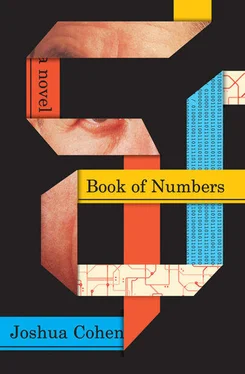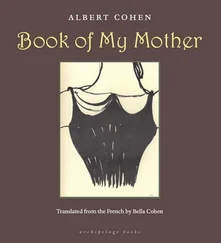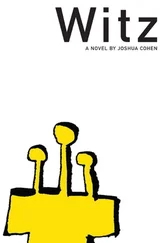://
I couldn’t complain, or have been more unemployed, insured, or domesticated — even a jaunt to the postoffice could feel like a fulltime job.
Between 9/11 and 2009, Aar and I had drifted, and the drift was my fault and then it was his and I was a failure and he a success and I spent more time mentally recording what I took to be his snubs and negs than I did manually recording any serious writing — I spent so much time imagining blame and resentment that if I’d laid it out all plain on the page, it would’ve been another book, another scuppered friendship.
But now, by having gotten married, it was as if I’d become — acceptable. Not socially — because Aar had never cared for niceties and still did his share of uglybumping with the underprivileged and Green Cardless — but psychologically, maybe, I’d become psychologically tamed.
I wasn’t this demonstrably disgruntled troll anymore, living under an overpass in the ghetto woods and pawing at an aimless compass — I’d become an equal, an adult, equally unhappy but undramatic in adulthood — I was trying to salvage something of myself, and maybe if this more stable, more functional blame and resentment lasted, something literary would be makeable too. This, at least, was one explanation, and though it was harsh, the other explanation was harsher: laziness, on both our parts. I’d drifted out of my boroughed burrow and into Manhattan, settling just across the park, which became our adjoining backyard: west side, east side, Aar and I were neighbors. We could be close now in every sense, we could have our rapprochement — all relationships are cheats of convenience, but NYers are cruel enough to neglect a bond due only to trackwork on the L.
I’d say he got in touch first, he’d say I got in touch first, anyway we were meeting — I was hauling across the park from West 92nd, once a month, every two weeks, whenever he didn’t have to get to the agency, whenever he didn’t have a lunch, to meet him at a diner. Past the mansions and into slummy deli territory — inconvenience must be treated as ritual, ceremony.
The diner was a kitsch joint of a bygone pantophagy, all unwiped formica and unctuous linoleums, leaks rusting into a bucket used for pickling. We always ordered the same from the same smack casualty waitress who never remembered the order, so we always had to order, Aar ordered: the smoked fishes for him, the poached eggs for me, and we’d split, but with the roles reversed — with 15 % going to the writer, 85 % to the agent, who though he talked faster ate faster too.
Aar avoided talking about my writing, even avoided mentioning books by authors still alive and in this language — rather his topics were: sex, Achsa, aging, Miriam, and he’d vary them in the manner of the menu: Miriam, aging, Achsa, sex — aging, Miriam, sex, Achsa — bagel with creamcheese, bagel with egg and cheese, bagel with creamcheese and lox. Not that my own fixations were any more fixable, or more palatable: Rach and I had fought and I’d left, Rach and I had fought and she’d left, we’d fought and she’d thrown a jug (Moms’s), we’d fought and she’d thrown a mug (Moms’s).
Absolutely, a refill. Pulp.
\
Caleb — he was never mentioned either. Not what he was doing, not that Aar and I were both in touch with him and knew we were both in touch and knew what he was doing.
Cal, he’d be able to write it. He’d be able to avoid all these redundancies, these doublings. This summary, synopsis. What in all the matinee movies and noon TV I took in was communicated by montage — time passing, elapsion: lie, sit, stand, sit, lie, drag to individual therapy, to couples therapy, sleep on the loveseat in the hall, wake up on the airmat in Ridgewood — today’s writing, especially Cal’s, is too impatient for.
“What are you doing with yourself?” Aar asked me, just before last Passover.
Any question might be the forbidden question, and any answer might expose present weakness, the latest changeable bandage for the writing wound (the not writing wound).
“Nothing, nothing,” I said. “First seder by Rach’s mother’s, my Ramses-in-law, second in Jersey, chometz and matzah.”
“I meant, what are you doing still married?”
What could I say? I could have told him — that I’d wanted to marry (I had wanted to), or that I’d loved her (I had)?
I, like my father before me, had been a wandering Aramean, seeking refuge in a distant land in the hopes of surviving the coming drought, the coming famine, only to become enslaved in that land, forced to make mud bricks and arrange them into pyramids for my own tomb? Not even — for the tomb of the man I used to be?
All men are Arameans, whoever they are, and we commemorate our enslavement to our female taskmasters and their mothers — our mothers — not just two nights a year, but daily. L’chaim.
Basically, though, the answer to his question was my book. Our book. That was the reason I married. That was the reason I was still married.
Why I got and stayed together with Rach wasn’t the book’s nonexistence unto itself, but rather was within that nonexistence, was covered by it: the generations broken, the family broken, to be repaired like a dropped pot or snarled ark of reeds, that unshakeable Jew belief in continuity, narrative, plot, in plopping myself in creaky unreclinable chairs around tables of prickly leaves to commiserate through recitation: flight into Egypt, plagues, flight out of Egypt, desert and plagues — a travail so repeated without manumission that it becomes its own travail, and so the tradition is earned.
But instead of explaining all that, I said, “I’m treating life like a book — like I’m the hero of my own life.”
“A book you’re living, not writing?” Aar had never been so direct.
I’m not sure it’s good writing to say what my reaction was — it was bad.
I don’t want to continue with that meeting — but then neither do I want to have to prose just one of our regular meetings: who’d you fuck, who do you want to fuck, Achsa’s college application essay he wanted my read on (How I Dealt With My Grief), remember that guy who tried to sell Miriam his father’s library comprised entirely of a single book the father had published about how to make rocks talk on Wall Street — the father had bought enough copies to make it a bestseller and put him on the lecture circuit, when he died his son found pallets of the stuff, books still wrapped, in a vault registered to the father in Secaucus. Or that other guy who’d tried to sell some other inherited junk: a raft of detectives, Westerns, that tatty crap by two nobodies named Thoreau and Emerson (first editions).
Or the way Miriam would pick her nose and silently fart at the register or if the fart refused to be silent how she’d slam the register drawer.
The scarves she always wore.
Let this meeting be as cryptic — as representative/nonrepresentative — as the Arameans, a people that never had a land of their own but still managed to leave behind their language — the only thing they left behind, their language. Aramaic. Ha lachma anya . This is the bread of affliction. Eli Eli lama shavaktani? Father, Father, why didn’t Christ quote the Psalms in Hebrew — was he that inept, or does excruciation always call for the vernacular?
Aar would pay, and would say as he said every time: “I never gave you anything for your funeral.”
He’d pay in cash—“My condolences on your continued nuptials,” and I’d slap down Rach’s card, and he’d put his hand atop mine and hold it, palm on palm on Visa and say, as if conspiring, as if pledging undying service, “Cash only.”
Читать дальше












